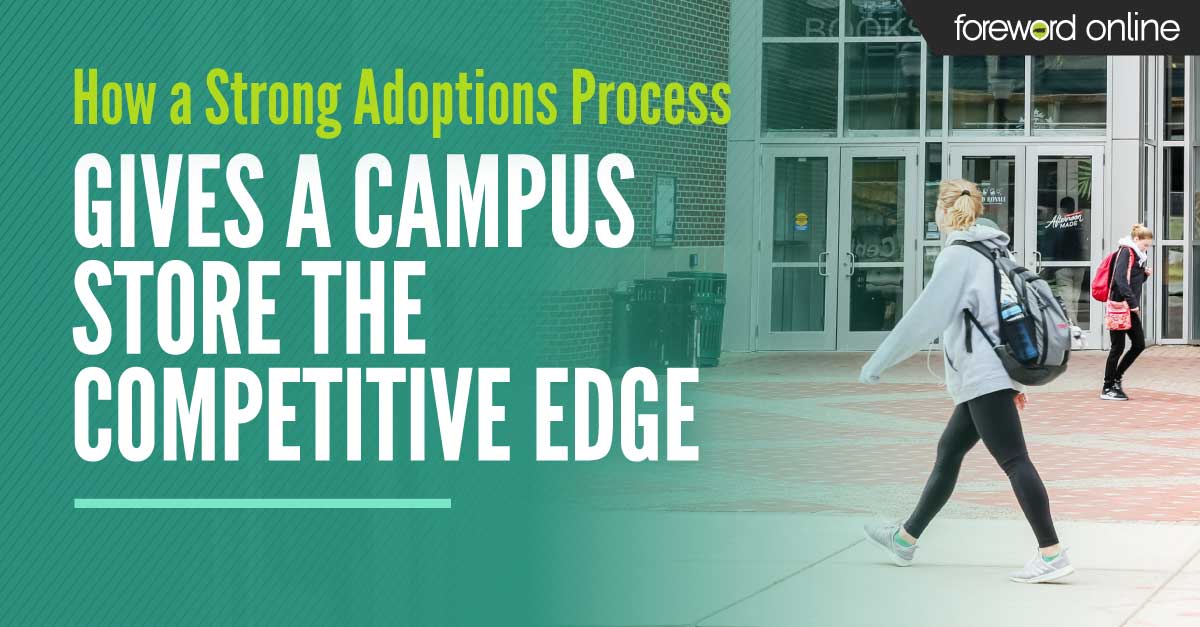It’s a distraction, an onerous bit of red tape or just an abstract requirement that seems out-of-step with classroom reality: Your earnest early-adoption request ends up deleted, routed to junk mail or ignored because faculty don’t understand why you’re sending requests out so early. If you want teachers to cooperate with the college store schedule, it’s critical to anticipate their questions, understand confusion and offer succinct, concrete answers.
Answers to 3 Big Faculty Questions About Adoptions
Question 1: Why order books for a new semester when the term has just begun?
The Faculty View: The bookstore demands for course material orders are ludicrous. Good teachers develop their courses as they go, experimenting with new approaches and materials, discovering what works and what doesn’t. An adoption request that arrives three weeks after the semester has begun is asking me to judge the success of my current course with insufficient information. Good instructors keep their syllabi fresh, relying on a few texts that prove teachable while introducing new challenges.
These adoption requests encourage pedagogical stagnation.
While not all faculty work like this, few develop courses on the same schedule as the bookstore. They need to know how the early adoption requests affect student lives and, especially, student learning.:
The Short Answer: Book prices hinge on supply and demand. Early adoptions allow students to buy and sell books at prime times when they can save the most or get the best prices. They also give students access to more used books. Studies show students are less likely to buy books — and be prepared for class — if prices are high.
Question 2: Why would my students want to sell their books?
The Faculty View: I choose course materials carefully, looking for texts students can use throughout their academic career. I encourage students to underline, highlight and make notes in books.That’s solid pedagogy. Reading actively increases readers’ engagement. Active readers experience more academic success.
Although it may seem absurd, many faculty members need to be reminded that students are broke. They also tend to be avid book collectors, who value their books differently than most students.
Be as concrete as possible when you answer this question. and don’t be afraid to tug at their heartstrings.
The Short Answer: Textbook costs have soared 73% in recent years. Many students are food insecure. Some are at risk of homelessness. The $50 savings a student receives from a used book or a timely adoption could be his or her grocery money. It could also be money needed for books next semester.
Question 3: Why would early orders help my students get more money back for their books?
The Faculty View: If students want to sell their books back, that’s fine, but my book-order date shouldn’t influence that. They’re selling the books from my class at the same time they sell them back for other classes — no matter when I order them. What’s more, these days, they can sell their books anywhere, anytime.
This question is tricky, because you don’t want your faculty communications buried in industry jargon or tedious detail — i.e. inside baseball. Try this response.
The Short Answer: When you order early, the bookstore knows whether the text will be in demand on campus, and it can offer a higher price for the text than students would get from an outside vendor. The best deals are available locally. Don’t forget: the additional $50 a student makes from that book might be the different between paying December rent — or not.
Stay tuned to Foreword Online for more about how best to communicate with faculty about course materials.




.jpg)

